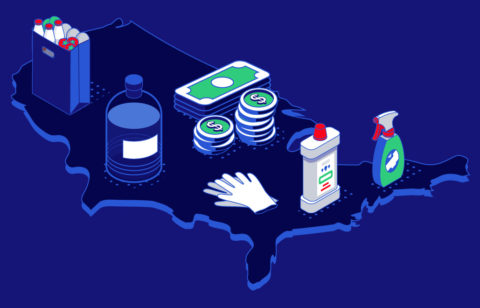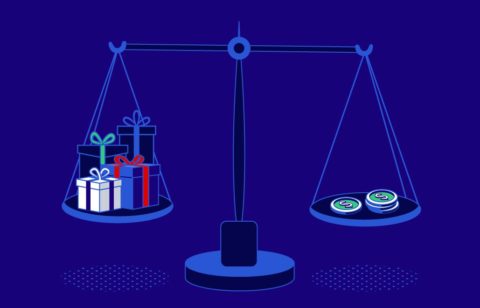Like eating fewer calories than you burn is an adage for losing weight, the secret to wealth is spending less than you earn. Many of us find living by this rule a challenge. But if you want to start growing your personal wealth, you will have to curb your spending. That is the secret to gaining a foothold on a robust financial future.
Americans are spenders; there is no getting around this fact. We use our hard-earned money to buy a house, a car, and oodles on our education. In fact, our economy is over 70% reliant on consumer spending. That is why everywhere you turn, you will see signs, advertisements, and endorsements with one message: SPEND!
Financial capability drives us; working hard every day is bred into the American work ethic. It motivates our kids to study and receive an education that helps them nab a job they enjoy…and can use to support themselves. This pursuit of wealth is anchored in our ability to spend the money we make to live the life we want.
But excessive spending can be destructive. It is especially so if you live beyond your means by borrowing money to pay for things you can’t really afford. The only way to live comfortably is to restrict your spending to what you really need.
Lowering Your Expenses Helps Build Wealth
Lower spending leads to having more money to save. It sounds simple because it is. You aren’t going to have abundant financial resources at your disposal unless you hold onto some of the earnings you bring in every month. That means spending less and saving more to enjoy a financial future unburdened by debt.
The American consumer has a laundry list of goals for their finances. They range from the greatest concerns, like paying off debt, to saving for vacations or buying a home. While these goals vary in importance from person to person, they all require the same thing: money.
If you need more motivation to develop healthier spending habits, here are 4 benefits showing constraint in your spending.
Correct the mistakes of the past
One of the essential gains that come with spending less is being able to correct your past financial mistakes. The norm today consists of working hard just to pay for the expenses we have already incurred. But this attitude sometimes works against us. The real secret to wealth is to spend less today, right now, so you can save for tomorrow. Savings can complete your debt solution and free up money to spend on your future self.
People Also Read
Bolster an emergency fund
Another benefit to enjoying lower spending is that you can build an emergency fund. This money reserve can save the day when you need to pay for an unexpected, costly event without touching the income you presently have coming in.
The lack of an emergency fund can turn an unexpected expense into a huge financial burden.
Prepare for retirement
Saving for the future should be a priority. Many of us think we can just wing it as we approach our pre-retirement years. But in the blink of an eye, you will stop working and need a financial cushion.
By practicing discipline now, you can build enough wealth to live a comfortable and quality lifestyle in your golden years.
Invest
Of all the reasons to spend less, investing is the most proactive way to earn more money. When you free up a portion of your income, you can use the extra funds to grow your wealth. There are many investment opportunities, including stocks, bonds, and even real estate. Making your money “work” for you is an effective step toward reaching your goals.
Tips to lower your spending
Of course, changing your spending habits isn’t as easy as it sounds. You have grabbed that Starbucks morning latte for years and don’t intend on stopping now. But if you don’t start spending with purpose, you could find yourself low on the funds you need to enjoy later life.
Here are some beginner tips you can implement today to hop on the road toward financial control:
Set up saving goals
This can provide direction for your financial life and guide you through every decision you make.
Create and follow a budget plan
You want to know where your money is going so you can decide where you should cut back on spending. Let go of the expenses that are not important and concentrate on those that will lead you to financial success.
Avoid unnecessary expenses
No matter how small an expense is, you should resist if it is not necessary. They can add up quickly and before you know it, you could be in debt over a few items you didn’t even really need or want.
Spending less isn’t always easy, but it is worth the effort. Yes, it will take some work on your part. But by sacrificing some things now, you will be investing in your future happiness.









